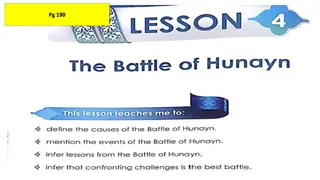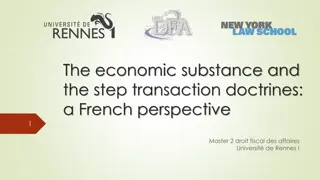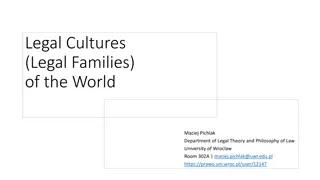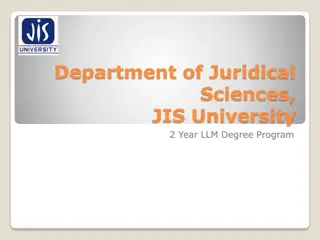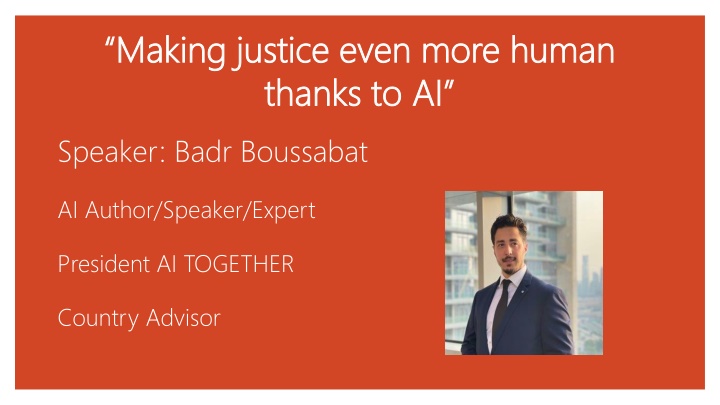
AI in Law: Making Justice More Human with Neuro-Symbolic Learning
Explore the integration of artificial intelligence in law, enhancing the human aspect of justice through neuro-symbolic learning. Delve into the reasons why AI will not replace judges, emphasizing efficiency and the need for human responsibility in the legal system.
Download Presentation

Please find below an Image/Link to download the presentation.
The content on the website is provided AS IS for your information and personal use only. It may not be sold, licensed, or shared on other websites without obtaining consent from the author. If you encounter any issues during the download, it is possible that the publisher has removed the file from their server.
You are allowed to download the files provided on this website for personal or commercial use, subject to the condition that they are used lawfully. All files are the property of their respective owners.
The content on the website is provided AS IS for your information and personal use only. It may not be sold, licensed, or shared on other websites without obtaining consent from the author.
E N D
Presentation Transcript
Making justice even more human Making justice even more human thanks to AI thanks to AI Speaker: Badr Boussabat AI Author/Speaker/Expert President AI TOGETHER Country Advisor
Artificial intelligence in law a)Why AI in the practice of law ? b)Neuro-symbolic learning c)Why will not AI replace judges ?
Why AI in the practice of law ? Digitalization pressure AI = systemic tool Law = human capital + money Drop in costs 80% of unstructured data Information Nuancing
Neuro-symbolic learning Logic reasoning and common-sense reasoning CSR Context Judge legal context & hierarchy of elements Judge > AI Neuro-symbolic learning : combination between rules-based systems and semantic understanding Natural language Why ? More value with less data focus on climate change Explainability, generalization and systematic generalization
Criteria Explainability Generalization Extrapolation Ethics correlated with Performance Symbolic YES NO YES NO Connectionist NO YES NO NO N-S YES YES YES YES
If Then - Purpose If a lawyer is a bad lawyer, then he must be brave, because he wants to be successful. If a lawyer loses more than 3 cases, then he will feel bad. If he feels bad, then he will do his best to think positive. If he thinks positive and learns from his mistakes, then he will be successful. Result: If he learns from his mistakes, then he will think positive. (Then he will be successful). This is what we call a multi-hop reasoning THEN becomes IF to reveal the purpose REASONING revealing underspecificities through purpose adding to the knowledge representation.
Pyramid of logic Then he will be successful If he thinks positive then he will think positive Then becomes if Then he will learn from his mistakes If he feels bad If he must be brave Then becomes if
Why will not AI replace judges ? Efficiency Current is at its lowest level (0.1) = 0.9 Automation (increasing) Baumol effect more human judges needed better responsibility L = Labor K = Capital Y= Output, efficiency, information = |b| 0 & 1 = (1- )
Concretely: Judges will interpret more, based on AI output Judges will gain higher responsibility which underscores the increasing importance of their role over time Consistent with current studies





